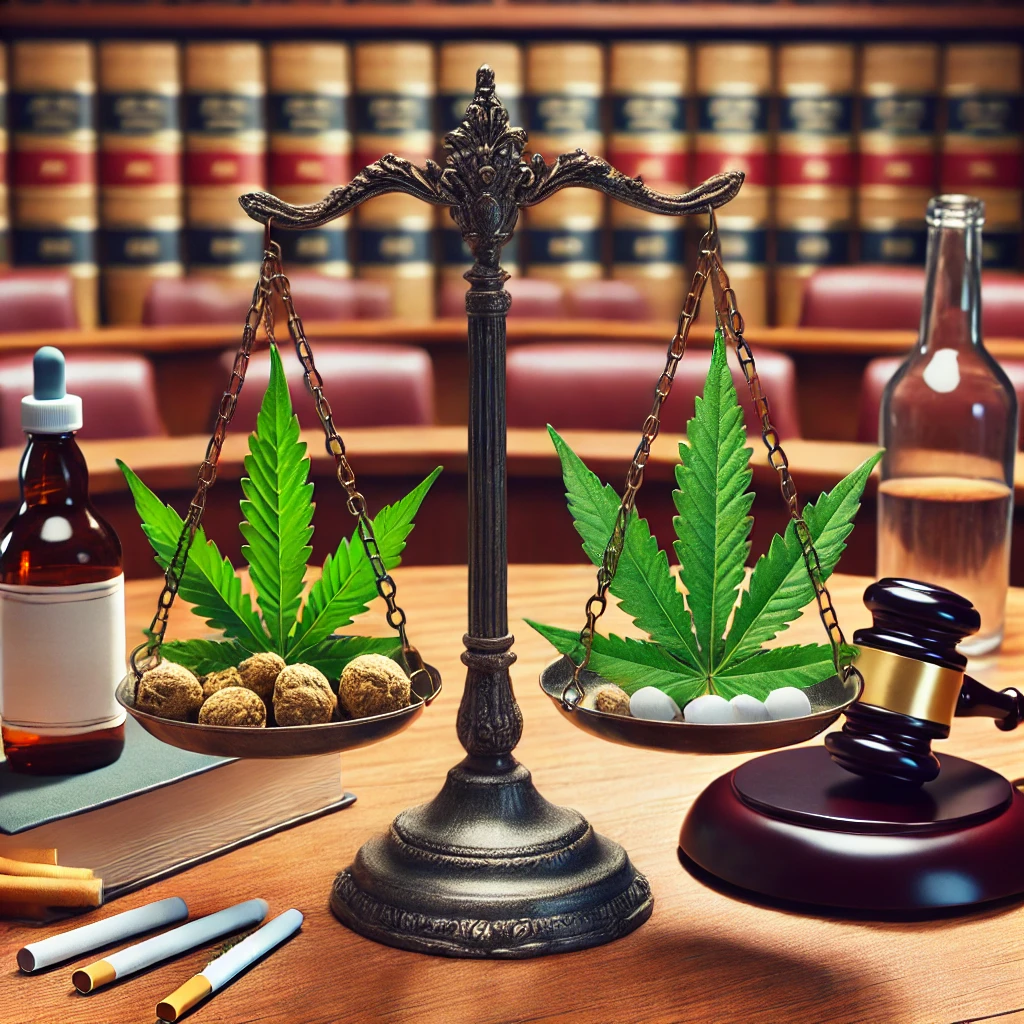Despite research showing that cannabis is less harmful than alcohol and nicotine, it is still considered illegal in many countries. The rationale for this prohibition goes beyond just health concerns and often stems from social influences and historical and political factors.
The issue of celebrities smoking cannabis has long been a major social controversy and has increased public interest in cannabis. Due to the negative portrayal of cannabis in the media and the law, most people naturally accept without question that cannabis is a “social evil”. However, some people argue for the legalization of cannabis smoking based on medical evidence. I, for one, believe that legalization is justified.
So, why is cannabis included as a narcotic in Korean law and under legal control? Cannabis, also known as marijuana, is an annual herb in the hemp family, native to Central Asia. Surprisingly, it has long been used in Korea as a raw material for burlap clothes. Cannabis as we know it is the dried flowers, leaves, and spikelets of the hemp plant that are smoked. Cannabis contains an ingredient called THC (tetrahydrocannabinol), which is a powerful psychoactive substance. When absorbed into the body in small amounts, it produces a mild stimulant effect, and when absorbed in large amounts, it produces various psychedelic effects such as floating, euphoria, and hallucinations. Because it contains cannabinoids that produce various other effects, cannabis is classified as a narcotic in Korea and many other countries.

What if we compare cannabis, which is classified as a drug, to tobacco, alcohol, etc. which are classified as recreational products? In the book ‘An Excuse for Cannabis’, it is written as follows.
“A narcotic, as defined by the World Health Organization or the United Nations Commission on Narcotic Drugs, is ‘a substance that, when used continuously, produces a strong desire to obtain the substance, requires increasing amounts of the substance to be effective, is dependent, and causes harm to the individual or society. Similar but different substances from narcotics are defined separately as psychotropic drugs. In other words, “addictive,” “dependent,” and “social” are the criteria that distinguish drugs. Unfortunately, tobacco and alcohol are excluded from the selected drugs. Nicotine is more powerful than any other drug in terms of addiction and dependence.”
The author explains that it’s wrong for ‘hemp’ to be labeled a drug, and compares it to alcohol and tobacco. A 1994 report by Philip Hiltz for the National Institute on Drug Abuse (NIDA), published in the New York Times, compares six drugs: nicotine, heroin, cocaine, alcohol, caffeine, and cannabis. The report found that cannabis has significantly lower dependence, withdrawal, and tolerance compared to alcohol and nicotine, and higher toxicity than nicotine but lower than alcohol. Many pro-cannabis advocates use this data to argue for the legalization of cannabis.
So, according to Philip Hiltz’s report, cannabis is less harmful than nicotine and alcohol, both of which are currently legal in South Korea. But when did cannabis become illegal? The persecution of cannabis began in the United States. In fact, until the early 20th century, hemp was actively cultivated in the U.S., with a thriving business. However, in the 20th century, hemp’s use as a fiber fuel was threatened by the emergence of other fiber fuels, and the political intervention of the Marijuana Tax Act in the United States was the beginning of the persecution. Later, Henry Anslinger’s “gateway theory” led to cannabis being treated as a narcotic in the state of Boston. This labeling of cannabis as a narcotic continues to be viewed negatively around the world to this day.
However, there is one country where cannabis is legal. This is the Netherlands. The Dutch are tolerant of cannabis, even allowing it to be sold in coffee shops, and the capital, Amsterdam, even hosts a hemp festival. Contrary to what you might expect, when you look at the statistics of addicts to hard drugs in Europe, the Netherlands actually has the lowest number of addicts. The Dutch achievements have inspired its European neighbors to become more tolerant of cannabis. In the United States, several states have legalized cannabis, including Washington and Vermont.
So, is it right for South Korea to follow the Dutch example and legalize cannabis? First of all, I don’t think it makes sense for cannabis, which is medically safer than both alcohol and nicotine, to be classified as a narcotic and therefore illegal. Before we jump to emotional conclusions about marijuana, we need to do some scientific research.
“In the absence of any systematic research on the characteristics or problems of cannabis users in Korea, there is an urgent need for a careful and professional discussion on the ‘institutional discrimination’ surrounding this minority group.”
However, while these experts believe that legalization is justified, they also say that we should proceed with caution because we don’t know everything yet. Given these experts’ views, we shouldn’t argue for legalization based solely on medical evidence, but should also consider the social implications.